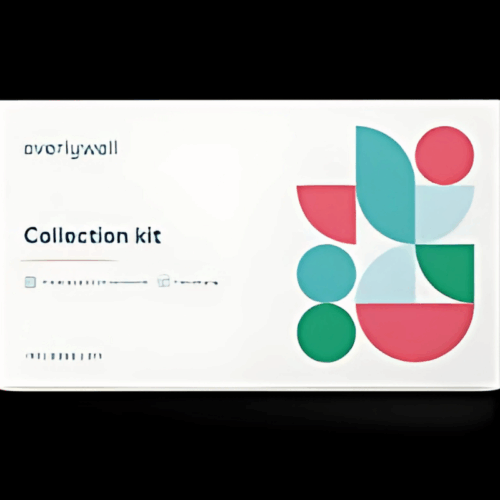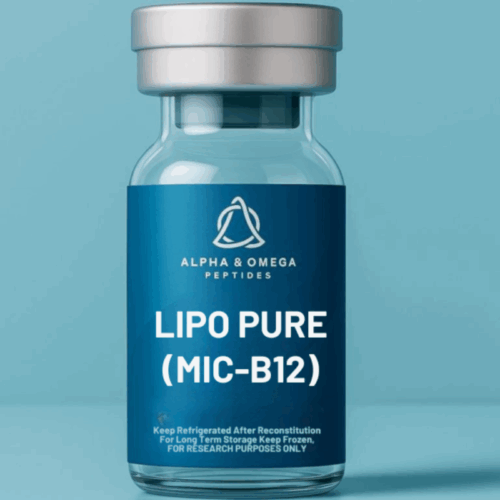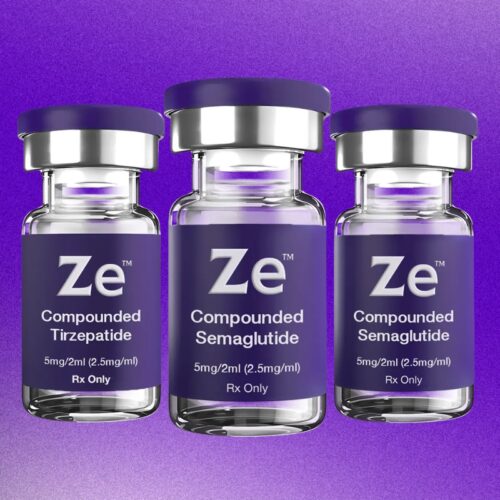Transform your mental health journey with MEDvidi, the leading online treatment center dedicated to personalized mental wellness. Our compassionate, licensed providers specialize in ADHD, anxiety, depression, and more, offering tailored treatment plans that fit your unique needs. Enjoy the convenience of 100% digital care with no waiting rooms and flexible appointment scheduling. Experience 24/7 support and real human connection from the comfort of your home. Choose MEDvidi for evidence-based solutions that empower you to reclaim your well-being. Start your path to improved mental health today—your first step is just a click away!
Description
MEDvidi is a U.S. telehealth service focused on mental health (ADHD, anxiety, depression, insomnia, OCD, PTSD) with add-on offerings like online prescription management, weight-management protocols (including GLP-1s) and ESA (emotional support animal) letters. The company states it can prescribe Schedule II–V medications where clinically appropriate and legal—e.g., stimulants for ADHD and benzodiazepines for anxiety—under the federal telemedicine flexibilities currently extended through December 31, 2025.
Pricing is transparent and mid-market for private-pay telepsychiatry: $195 for a 30-minute new-patient visit, $159 for 15-minute follow-ups, with separate, clearly advertised pricing for weight loss and ESA packages. MEDvidi does not bill insurance but says it will provide itemized receipts; HSA/FSA cards are typically acceptable. Refund and no-show policies are explicit (and strict).
Reputation is generally positive on third-party platforms (4.2/5 on Trustpilot, 830 reviews), though Trustpilot flags “may use unsupported invitation methods,” which can bias ratings. Patient narratives frequently praise responsiveness and same- or next-day access; negative reviews cluster around missed appointments and pharmacy refusals—both common friction points across controlled-substance telehealth.
Privacy materials include a HIPAA Notice and a separate AI Usage Consent (disclosing limited, consent-based use of AI tooling), plus an Editorial Policy describing medical review of site content. Overall, MEDvidi appears compliance-aware; however, like many fast-iterating telehealth sites, a few pages show date inconsistencies (e.g., an older DEA-flexibility date on one page versus the updated 2025 extension elsewhere).
Bottom line: MEDvidi is a legitimate, access-oriented option for adults who need timely psychiatric evaluation and ongoing medication management—including controlled medications—provided they are comfortable with private-pay pricing, potential pharmacy variability, and the obligations in MEDvidi’s cancellation/refund policy. It is not a fit for emergencies or for patients who require in-network insurance billing and long psychotherapy blocks.
What MEDvidi is (and who it serves)
MEDvidi describes itself as an online mental-health clinic founded in 2019 that grew out of in-person clinics (San Francisco and Miami). The “About Us” page names Vasili Razhnou (CEO/founder), Alex Kulitski (co-founder), Oleg Gorbylev (COO), and Laura Purdy, MD (Chief Medical Officer). The site highlights 45+ clinicians (roughly 50–55% MD/DO) who manage ADHD, anxiety disorders, depression, and insomnia. Availability has expanded from an initial 12 states to 20+ states with a stated aim to scale further.
Coverage is clearly listed and includes many U.S. states (e.g., AZ, CA, FL, IL, NY, TX, WA, etc.). The homepage and FAQ emphasize appointments often available within 24 hours. (Note that individual state availability and provider mix can change; always check the live coverage list during sign-up.)
Services and care model
Core conditions and programs
-
ADHD (adult focus), with language explicitly noting that qualified clinicians may prescribe controlled medications, including stimulants when appropriate.
-
Anxiety, Depression, Insomnia, OCD, PTSD—managed through medication and follow-up.
-
Weight management, with GLP-1 and non-GLP-1 options and dedicated visit types (e.g., “weight loss initial appointment”).
-
Prescription management & refills (continuity for existing therapies, subject to review).
-
ESA letters, delivered through a two-visit pathway (initial evaluation and a follow-up ~30 days later) with clearly posted package pricing.
Visit structure and workflow
-
New patients: 30-minute video visit for evaluation and treatment planning ($195).
-
Follow-ups: 15 minutes ($159) for monitoring and dose/plan adjustments.
The site suggests a portal-based intake with scheduling, rescheduling, and receipt access, and notes that many patients can see a provider within 24 hours—a meaningful differentiator versus brick-and-mortar psychiatry waitlists.
Prescribing stance, controlled substances, and the 2025 federal extension
MEDvidi’s FAQs state that its clinicians can prescribe Schedule II–V medications online (e.g., Adderall, Ritalin, Vyvanse for ADHD; Xanax, Klonopin, Ativan in anxiety care) when clinically indicated and when compliant with state law, pharmacy policies, and federal telemedicine rules. Their prescription-refill page also enumerates many brand/generic options across ADHD, anxiety, depression, and weight management (including GLP-1 analogs like Ozempic/Wegovy).
Crucially, the DEA/HHS “Third Temporary Extension” maintains COVID-era telemedicine prescribing flexibilities through December 31, 2025, which sustains remote initiation of many controlled medications without a prior in-person exam (subject to evolving rules and state overlays). The Federal Register entry and HHS/DEA pages confirm the 2025 date; MEDvidi’s own “DEA rules update” page referencing 2024 appears older than the homepage FAQ that reflects the current 2025 end-date. Patients should expect ongoing regulatory evolution and occasional pharmacy-level discretion.
Pharmacy variability: MEDvidi discloses that some pharmacies may refuse to fill telehealth prescriptions (especially for controlled drugs) and that the support team can reroute to a different pharmacy; however, refunds are not issued for pharmacy refusal or stock issues (see refund policy). This is consistent with broader telehealth patterns in 2024–2025 as chains tighten internal policies.
Pricing, insurance, and payments
Standard visit fees (mental health medication management)
-
Initial visit (30 min): $195
-
Follow-up (15 min): $159
Weight loss pricing (select examples)
-
Initial appointment: $195
-
Follow-ups: $159
-
Lab order: $79
-
Past medical records review: $25
-
GLP-1 prior authorization support: $85
-
Insurance assistance: $65
Medication cost is not included; GLP-1 prices vary widely by plan and pharmacy.
ESA letters
-
Basic ESA package: $150
-
Full ESA package: from $199
-
ESA renewal: from $99
Includes a 30-minute clinician consult; ESA letters are typically issued after a follow-up ~30 days later if clinically appropriate.
Insurance, HSA/FSA, and receipts
MEDvidi states it does not accept insurance directly. Patients may use HSA/FSA cards and can request itemized receipts for potential out-of-network reimbursement.
Payment terms & refund policy (read these closely)
-
Charges may be split: part at booking, remainder right before the visit.
-
Full refunds are possible for timely (≥8 hours) cancellations, provider no-shows, technical issues on the provider side, or if no appropriate time slots exist.
-
Fees: Late cancel/reschedule fee $50 (<8 hours); no-show fee $100 (including failing to log in within 5 minutes of start time while provider is available).
-
No refunds for pharmacy refusal or stock shortages; MEDvidi can help reroute the prescription.
-
Policy last updated May 5, 2025.
Clinician network & access
MEDvidi advertises 45+ providers, with roughly half being MD/DO, and experience ranging “up to 40 years.” Provider profiles suggest a mix of psychiatry, primary care, and PMHNPs/FNPs across covered states. The providers page also lists a subset of clinicians with bios and credentials. For some patients, the mix of MD/DO and NP/PA clinicians is a benefit (more appointment slots); others specifically want board-certified psychiatrists—so it’s worth checking the assigned clinician’s credentials in your state before your first visit.
Reputation & patient experience
Trustpilot: 4.2/5 across ~830 reviews (as of August 2025), with the company responsive to negative feedback. Trustpilot explicitly notes “may use unsupported invitation methods,” which can inflate positivity; treat third-party star ratings accordingly. Recent patient stories highlight fast scheduling, help switching pharmacies, and helpful support staff; critical reviews cite provider no-shows/late arrivals and occasional support lapses—issues MEDvidi’s refund/no-show policy addresses with defined remedies and fees.
Privacy, consent, and content quality
-
HIPAA Notice & HIPAA Privacy Policy are posted, describing permitted uses/disclosures and patient rights. This is expected for covered entities and business associates.
-
Consent to Telehealth lays out responsibilities and informed-consent elements for video care.
-
AI Usage Consent discloses that, with explicit consent, MEDvidi may use AI tools to enhance care operations; patients can decline. We view transparency on AI as a positive—patients should still review what, if any, data leaves the platform.
-
Editorial Policy describes expert authorship, medical review (MD/DO/PharmD/CRNP), reliance on authoritative sources (DSM-5, NIH/WHO/APA, peer-reviewed journals), and regular content updates. This helps reduce misinformation on condition/medication pages.
Strengths
-
Access & speed: Same-/next-day availability in many states and a streamlined portal reduce wait times vs. community psychiatry.
-
Breadth of prescribing (with guardrails): Supports Schedule II–V prescribing under the federal telemedicine flexibilities, covering stimulants and certain anxiolytics in appropriate cases; publishes clear medication lists by condition.
-
Clear pricing & policies: Posted visit fees, weight-loss extras, and ESA letter packages; refund/no-show policy sets expectations upfront.
-
Transparency artifacts: HIPAA materials, Telehealth consent, AI consent, and editorial policy suggest process maturity for a consumer telehealth brand.
-
Patient support for pharmacy routing and prior authorization (GLP-1 program).
Limitations & cautions
-
Insurance: No direct insurance billing; out-of-network reimbursement varies. This makes ongoing management potentially costly for frequent follow-ups.
-
Pharmacy discretion & supply: Big-box chains and some regional pharmacies may decline telehealth-originated controlled scripts or those from out-of-area clinicians. MEDvidi will reroute, but refunds are not provided for such refusals. Plan a backup pharmacy.
-
Strict attendance policies: The $50 late-change and $100 no-show fees are firm; log in early and confirm your video setup.
-
Evolving regulations: DEA/HHS are still refining permanent tele-prescribing rules; state rules vary. Expect periodic changes and occasional friction while renewals are processed under the 2025 extension.
-
Site consistency: A few pages show legacy dates (e.g., a 2024 DEA-flexibility note) while other pages reflect the current 2025 extension. Verify critical regulatory details against official sources (we link them herein).
-
Review signals: Trustpilot notes potentially unsupported invitation methods; strong star ratings should be read alongside detailed narratives.
Who MEDvidi is well-suited for
-
Adults who need timely access to psychiatric evaluation and ongoing medication management, including potential initiation or continuation of controlled medications under current rules.
-
Patients comfortable with private-pay pricing and clear attendance policies.
-
Individuals seeking weight-management care (including GLP-1 navigation) with transparent add-on fees and prior-auth assistance.
-
Those needing a legitimate ESA letter through a structured two-visit process rather than one-click letters.
Who should consider alternatives
-
Patients requiring in-network insurance billing or integrated psychotherapy programs with long, recurring therapy blocks (MEDvidi’s current emphasis is medication-centric visits; the company has stated plans to expand psychotherapy but not all markets will have it today).
-
Individuals with acute safety concerns (suicidality, intoxication, medical crises) who need emergency or specialty in-person care; telemedicine medication visits are not an ER substitute. (See MEDvidi’s Telehealth Consent and HIPAA documents for scope).
-
Patients living in non-covered states at the time of reading (availability changes; check the live list during sign-up).
Practical tips to improve your experience
-
Before your first visit, list prior diagnoses, meds tried (with doses & response), side-effects, and any CURES/PMP issues that might appear in a state prescription-monitoring query. It speeds risk-benefit decisions for controlled drugs. (General best practice; confirm specifics with your clinician.)
-
Call your preferred pharmacy ahead of time to ask whether they fill telemedicine-originated prescriptions for the class you expect (e.g., stimulants, benzodiazepines, GLP-1s). If uncertain, identify a backup local pharmacy—a frequent workaround patients mention in reviews.
-
Budget for follow-ups: the default cadence for controlled meds is often monthly early on; non-controlled may stretch longer. Multiply the $159 follow-up fee by the likely visit frequency.
-
Know the policy clock: cancel or reschedule ≥8 hours ahead to avoid fees; log in a few minutes early to avoid a no-show.
-
Keep receipts for HSA/FSA and potential out-of-network claims; ask support for itemized statements if needed.
-
Re-check rules in late 2025: If you’re starting a controlled medication now, be aware the current DEA flexibilities end Dec 31, 2025 unless new rules are finalized; your clinician may advise an in-person exam or other steps as policies evolve.
Verdict
MEDvidi aligns with the access-first telepsychiatry model that matured during and after the COVID-19 era: it’s fast, policy-transparent, and clinically capable of prescribing a full range of psychiatric medications (including Schedule II–V) when warranted and legal. The service’s strengths—speed, breadth, and clear policies—are counterbalanced by private-pay costs, strict attendance fees, and the pragmatic reality that pharmacies are uneven in accepting remotely initiated controlled prescriptions.
For motivated, organized patients who value rapid access and are comfortable with the private-pay model (and who can proactively navigate pharmacy logistics), MEDvidi is a strong option in 2025. For those needing insurance billing, long psychotherapy blocks, or guaranteed acceptance at a specific chain pharmacy, look to an in-network local psychiatry group or integrated telehealth program instead.
Sources and documentation
-
MEDvidi — How it works, pricing, insurance, states (FAQs / homepage) and state coverage list.
-
ADHD program page (explicit controlled-substance language).
-
Prescription refills (medication examples across ADHD/anxiety/depression/weight).
-
Weight-loss program and fees.
-
ESA letter pathway & pricing.
-
Payment Terms (deposit/split charging).
-
Refund policy (May 5, 2025; late/ no-show fees; pharmacy non-refund).
-
HIPAA Notice; Telehealth Consent; AI Usage Consent; Editorial Policy.
-
About Us (founding, leadership, growth, appointment access).
-
Trustpilot (4.2/5, 830 reviews; note on unsupported invitation methods).
-
Federal Register & HHS — Third Temporary Extension of telemedicine controlled-substance flexibilities through Dec 31, 2025; DEA/HHS announcements.




